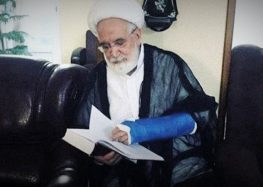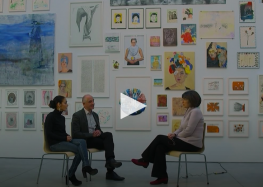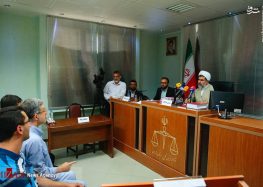Stand Up to Ahmadinejad’s Falsehoods
Scan of Court Ruling Sentencing Sakineh Ashtiani to Stoning
(20 September 2010) Mahmoud Ahmadinejad lied outright about the stoning sentence of Sakineh Ashtiani during an interview with ABC’s Christiane Amanpour on 19 September, by denying a stoning sentence was ever issued, despite well-documented evidence to the contrary the International Campaign for Human Rights in Iran said.
The international community, world leaders, and members of the media present in New York for the opening session of the United Nations General Assembly, should strongly register their protests against Ahmadinejad’s lies about the critical situation of human rights in Iran, the group said.
The International Campaign for Human Rights in Iran is publishing a court document from Ashtiani’s case that states her sentence as stoning. The document is the appeals form filed by her lawyer, Hootan Kian, with the Supreme Court on 7 July 2010. The scan of this document and its translation are provided below.
“…Miss Mohammadi was never sentenced to stoning. This was news that was produced and incorrect… there was no sentence of stoning issued in the first place… this was the news that was made up,” Ahmadinejad told Amanpour.
“In every interview and at every meeting Ahmadinejad should be reminded that the world is well aware of the great injustices and repression carried out against the Iranian people at the hands of his government,” said Hadi Ghaemi, the Campaign’s spokesperson.
“They should tell him clearly and loudly that documented evidence shows he is not telling the truth,” he added.
Ahmadinejad also challenged Amanpour’s question regarding the skyrocketing number of executions under his presidency–a more than fourfold increase. Amanpour based her questions on Amnesty International’s annual reports that documented 86 executions taking place in 2005, when Ahmadinejad was first elected, versus at least 388 executions in 2009. Ahmadinejad avoided the question by saying, “How do they know? They haven’t come to Iran.”
The Campaign notes that Amnesty International figures are compiled from reports published in Iranian newspapers and are therefore well documented. Indeed, the actual number of executions is likely higher, since the coverage of Iranian media from all regions of the country could not be fully comprehensive.
The Campaign further challenges Ahmadinejad to allow independent human rights organizations into the country. Along with a handful of countries, such as Myanmar, North Korea, and Turkmenistan, Iran bars independent human rights organizations such as Human Rights Watch and Amnesty International, which have been asking for visas to travel there for several years.
The Iranian government has also not allowed any UN independent human rights monitors into the country since 2005, despite repeated requests.
Despite these limitations, brave Iranian human rights defenders have continued to provide well-documented evidence to the outside world regarding the harsh repression and grave human rights violations in the country.
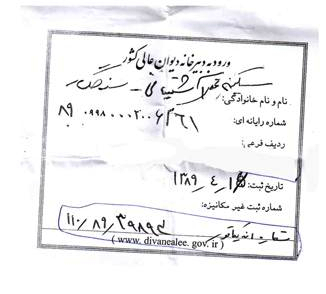
- This document, issued by the Supreme Court administration on 7 July 2010, acknowledges the receipt of appeals request to rule on the stoning sentence of Sakineh Ashtiani. It explicitly states her sentence as stoning.
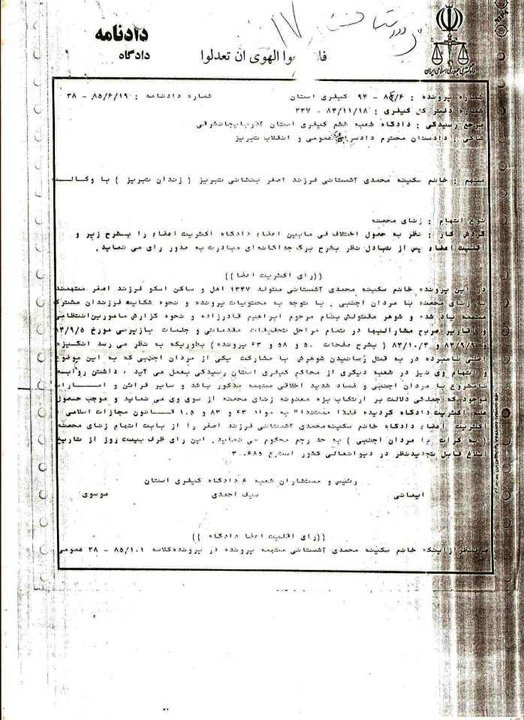
Scan of the sentencing document issued by the 6th Branch of the Criminal Court of Eastern Azerbaijan Province on 10 September 2006, sentencing her to stoning.


